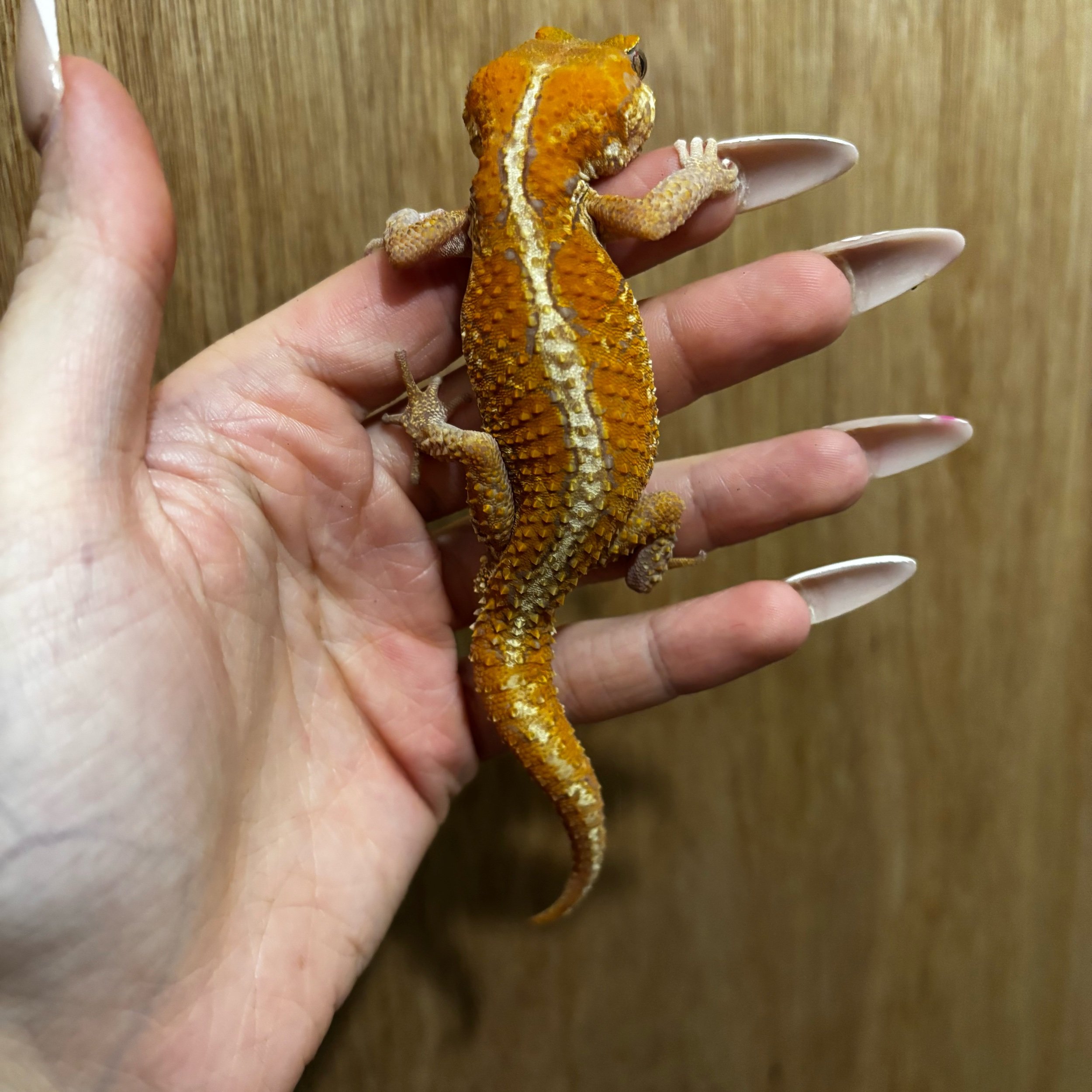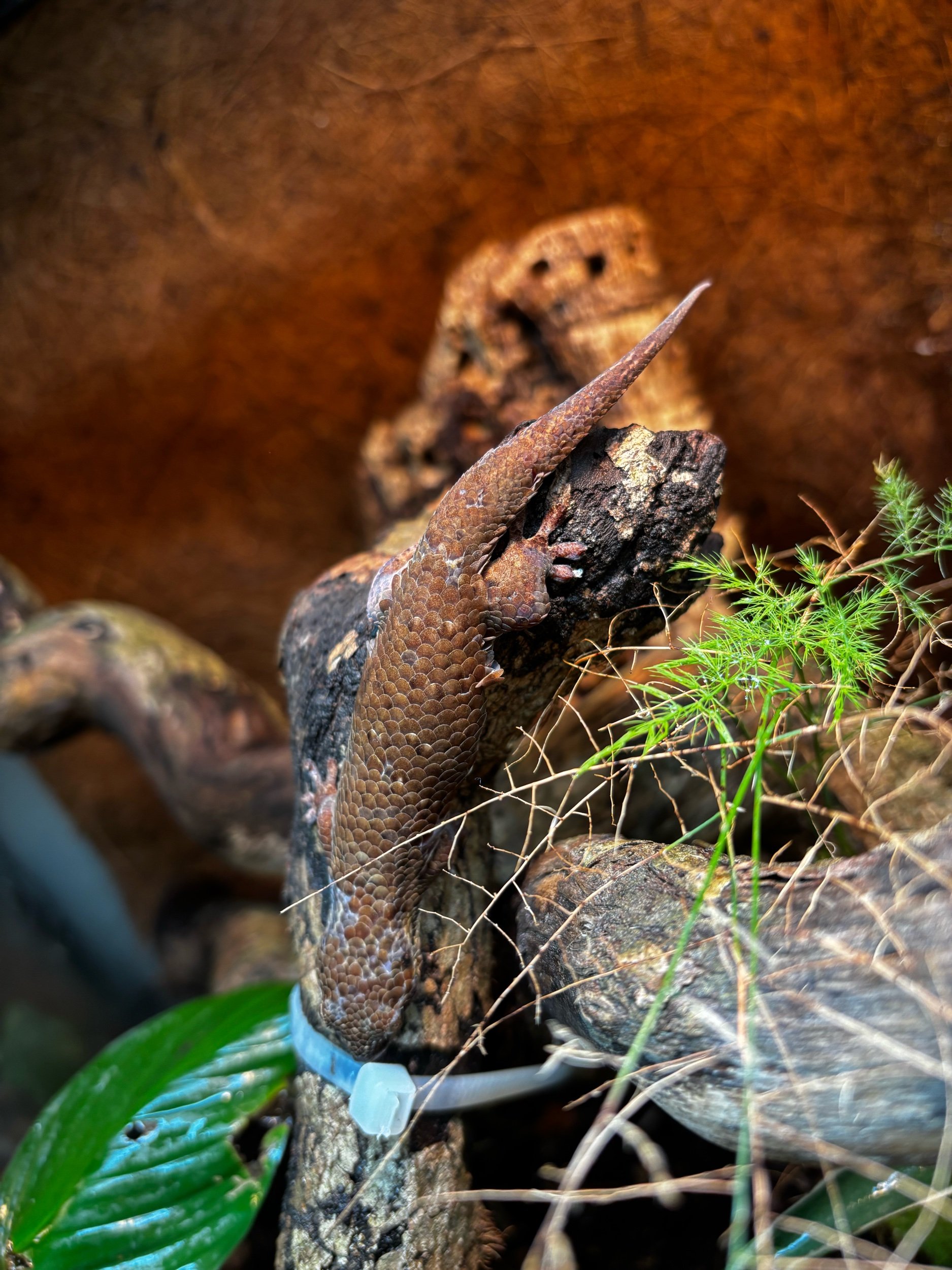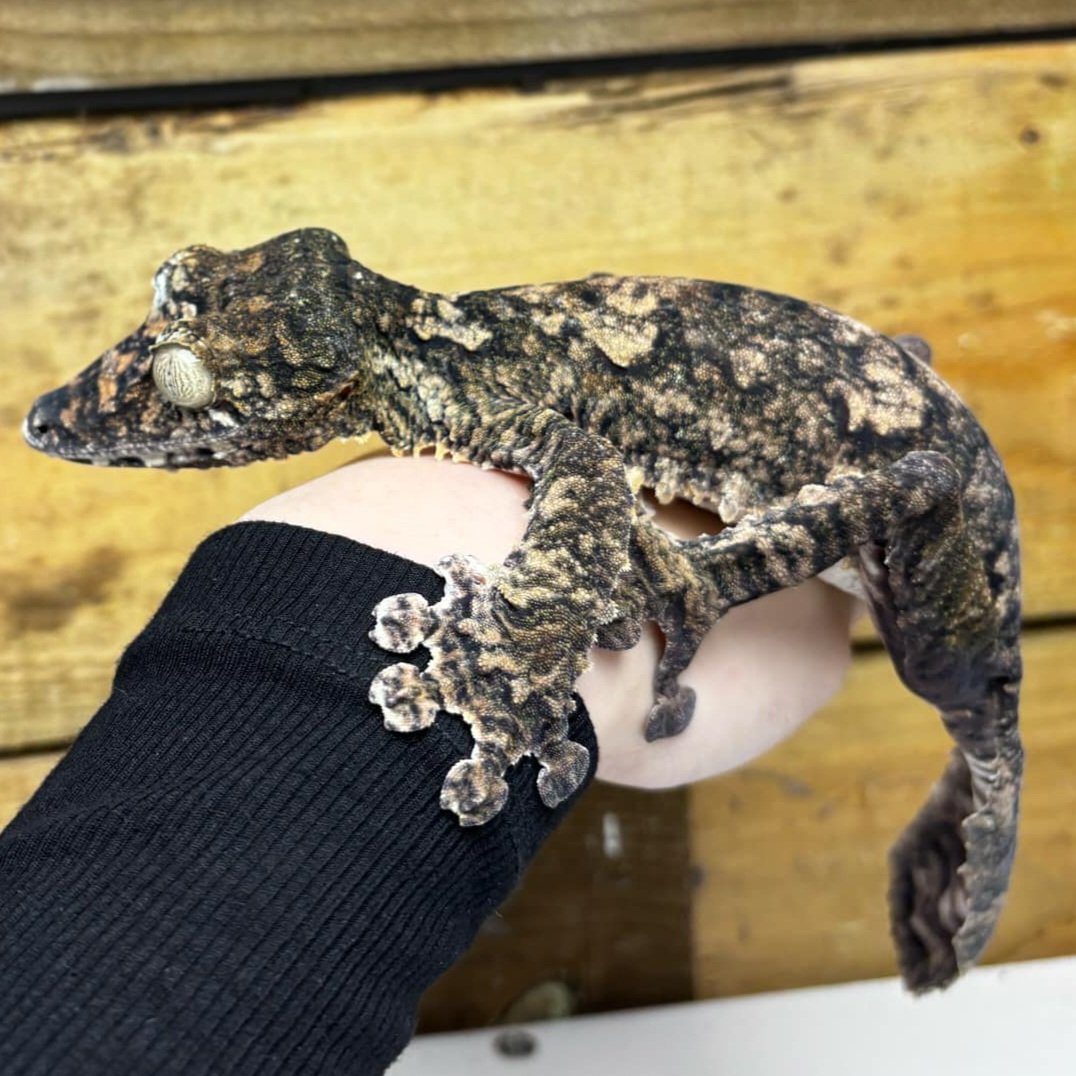 Image 1 of 8
Image 1 of 8

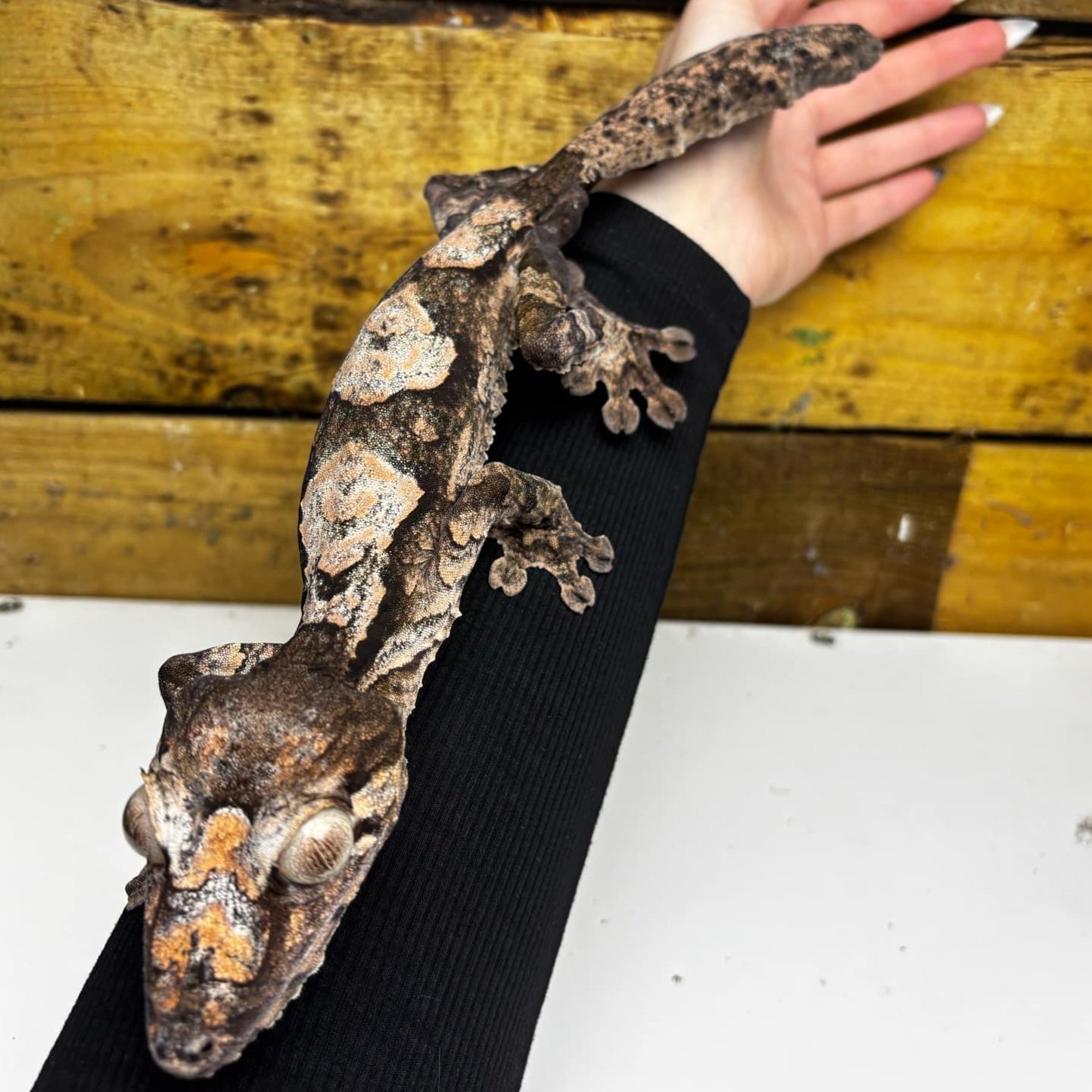 Image 2 of 8
Image 2 of 8

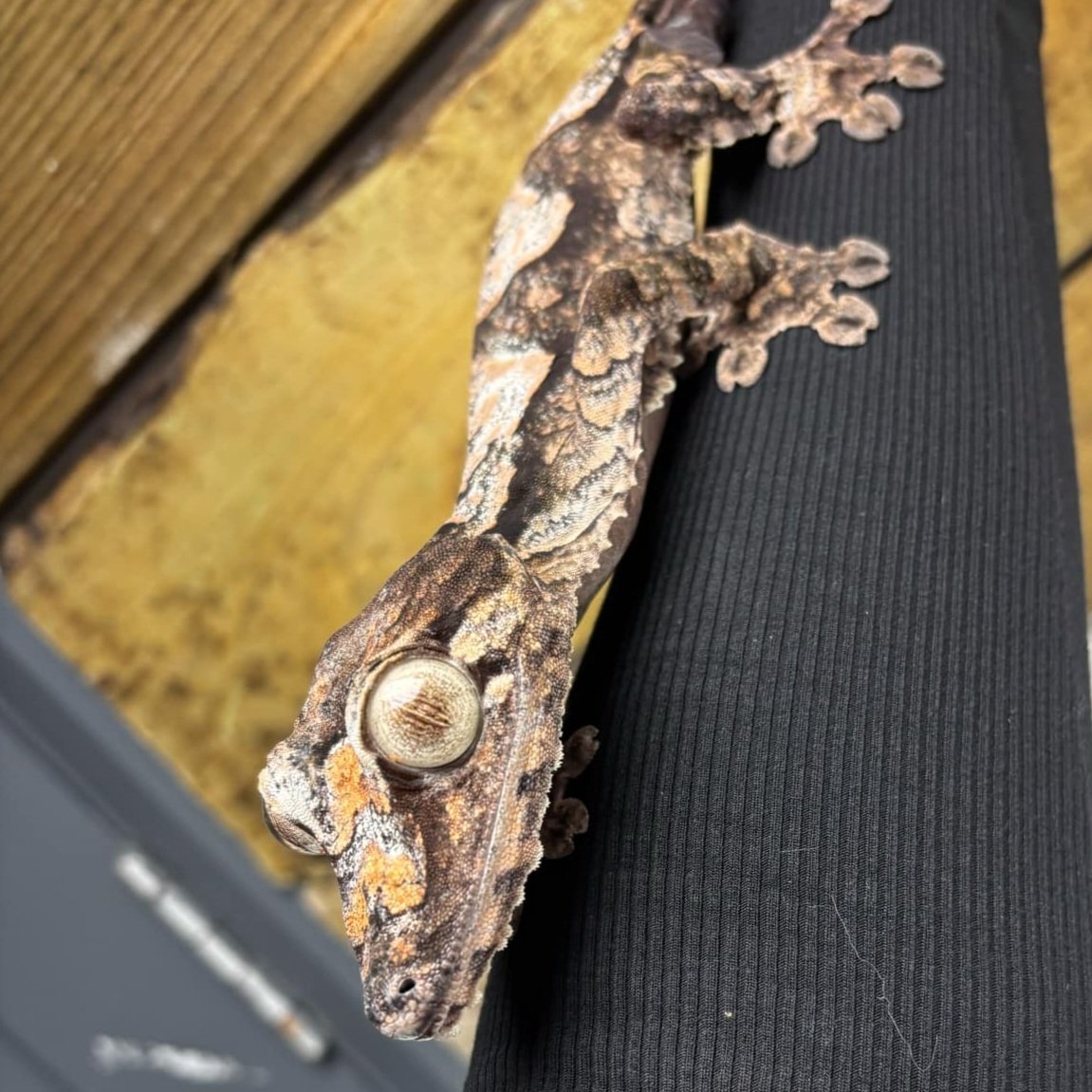 Image 3 of 8
Image 3 of 8

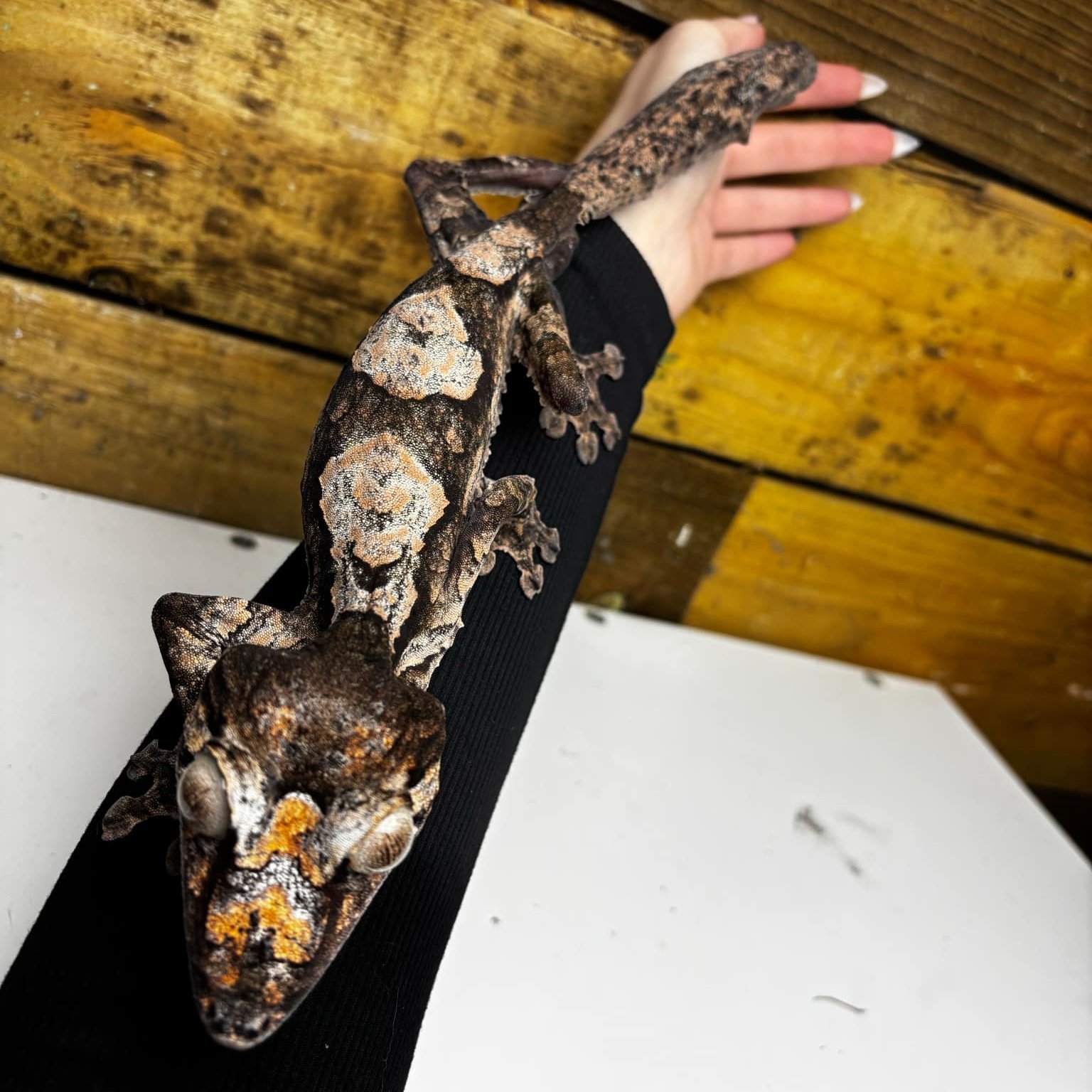 Image 4 of 8
Image 4 of 8

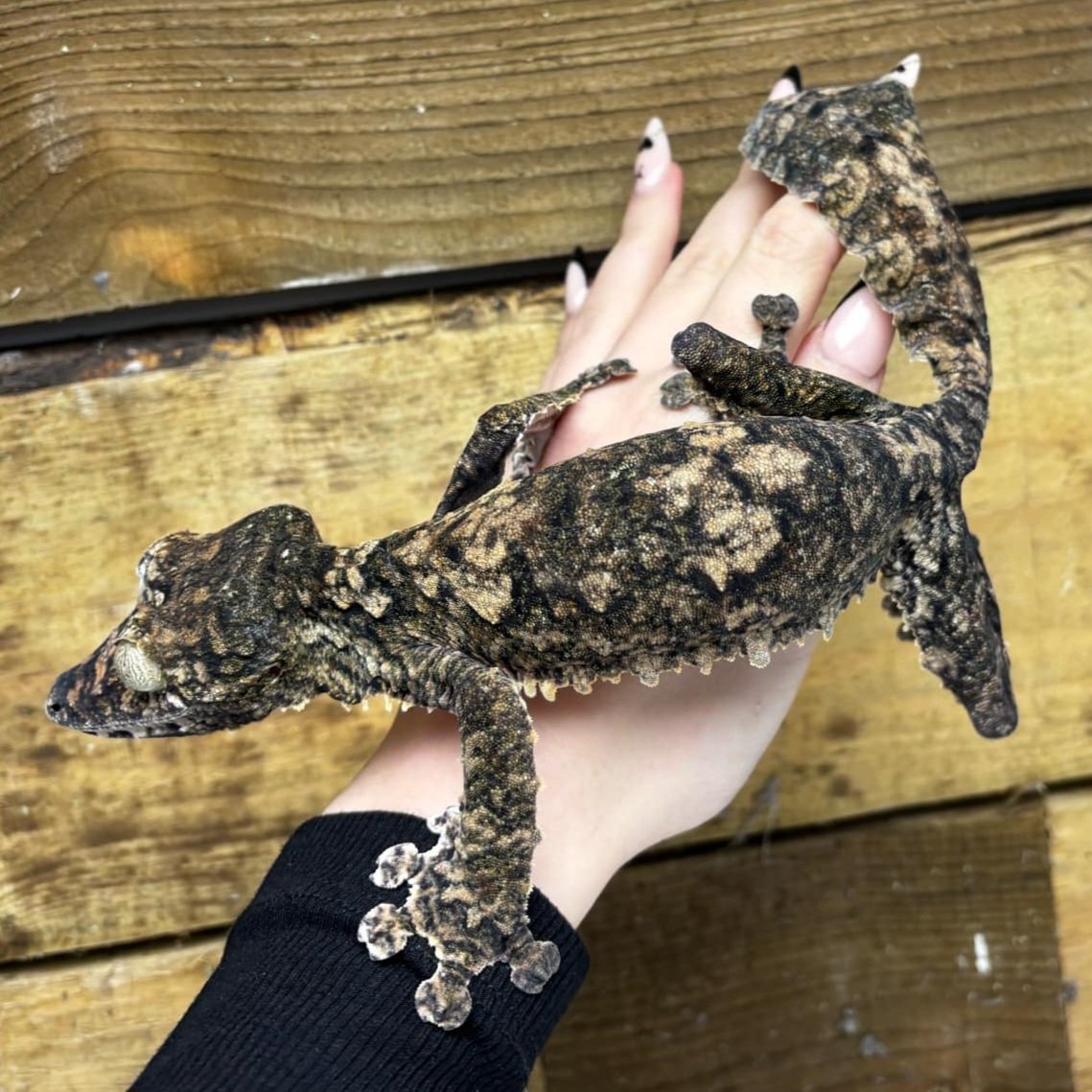 Image 5 of 8
Image 5 of 8

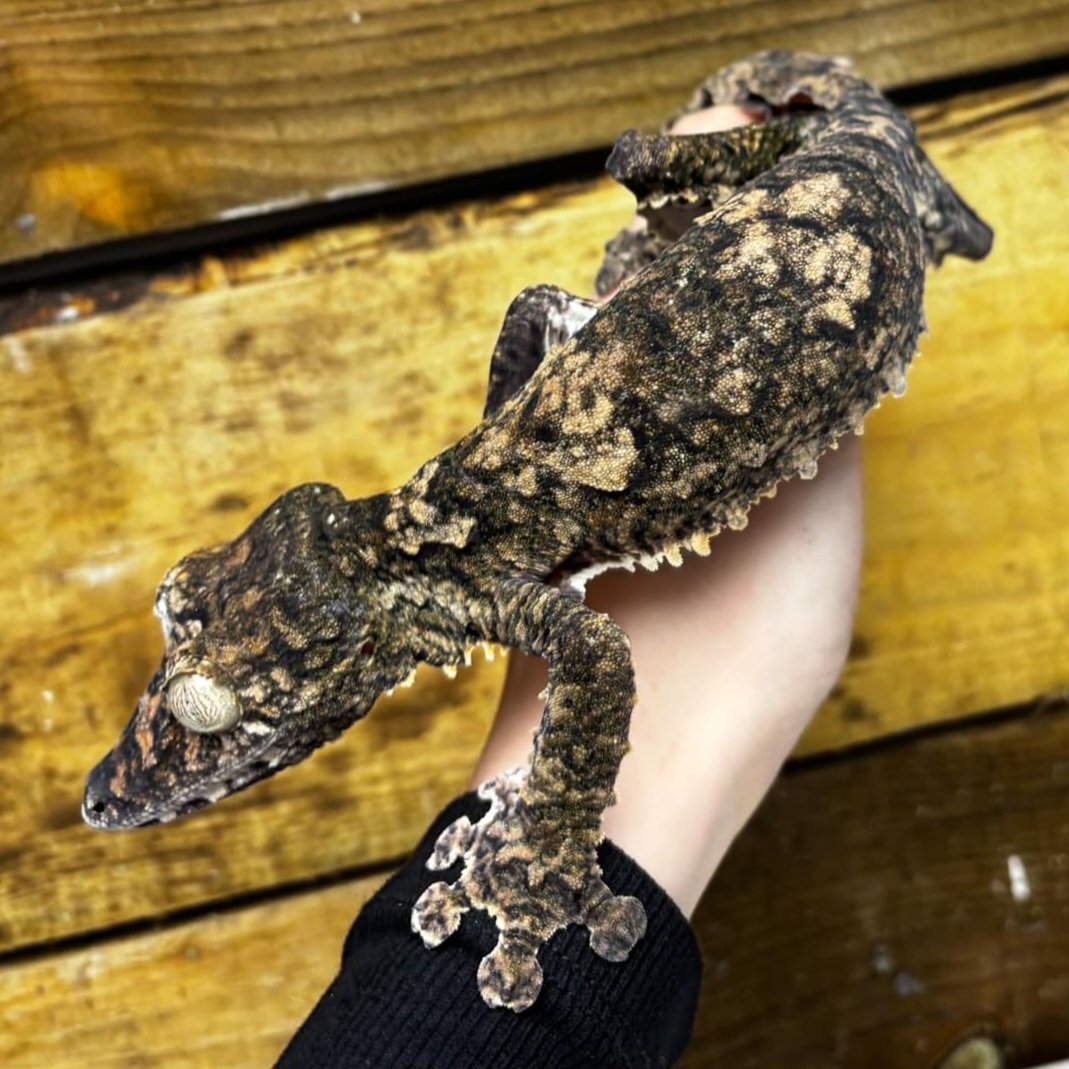 Image 6 of 8
Image 6 of 8

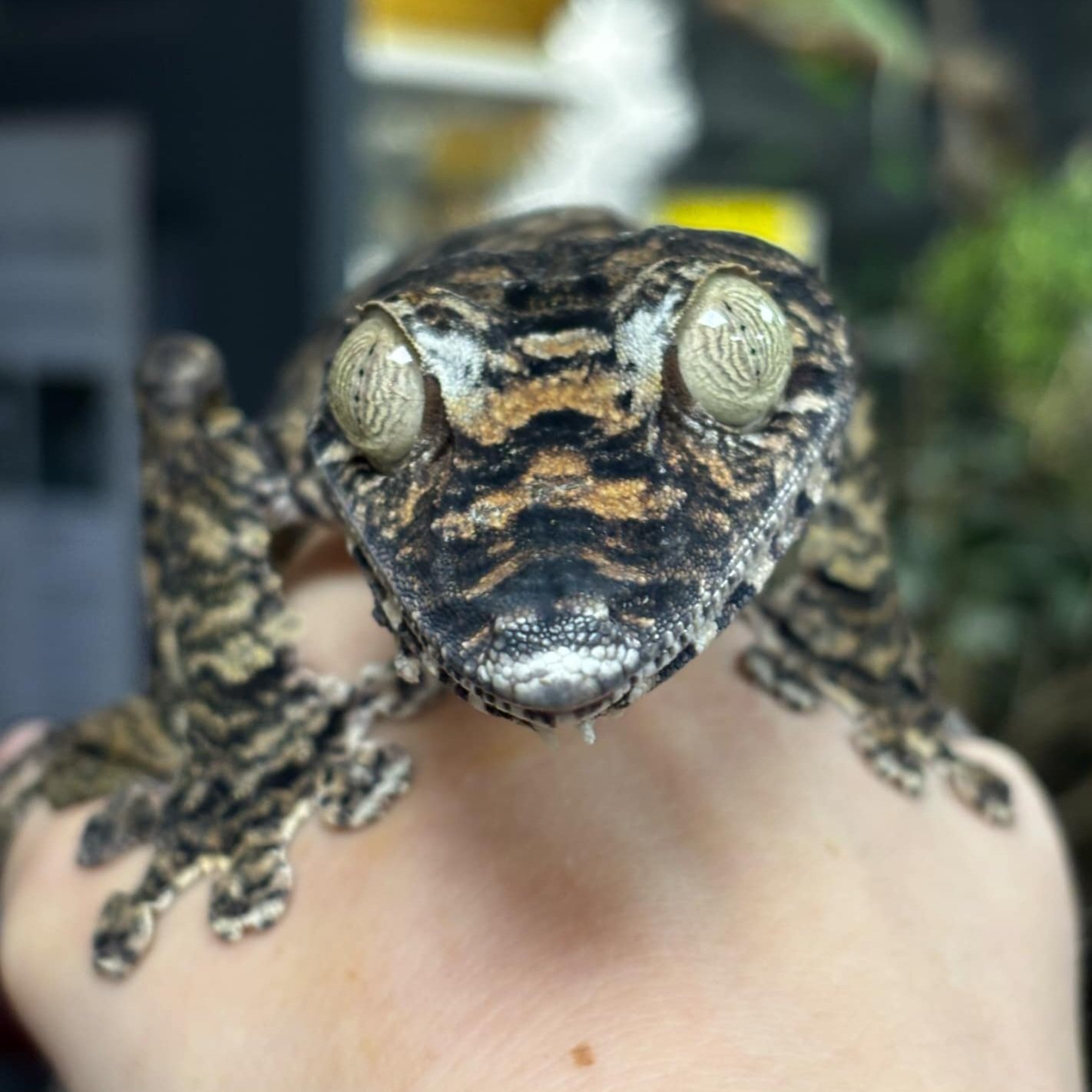 Image 7 of 8
Image 7 of 8

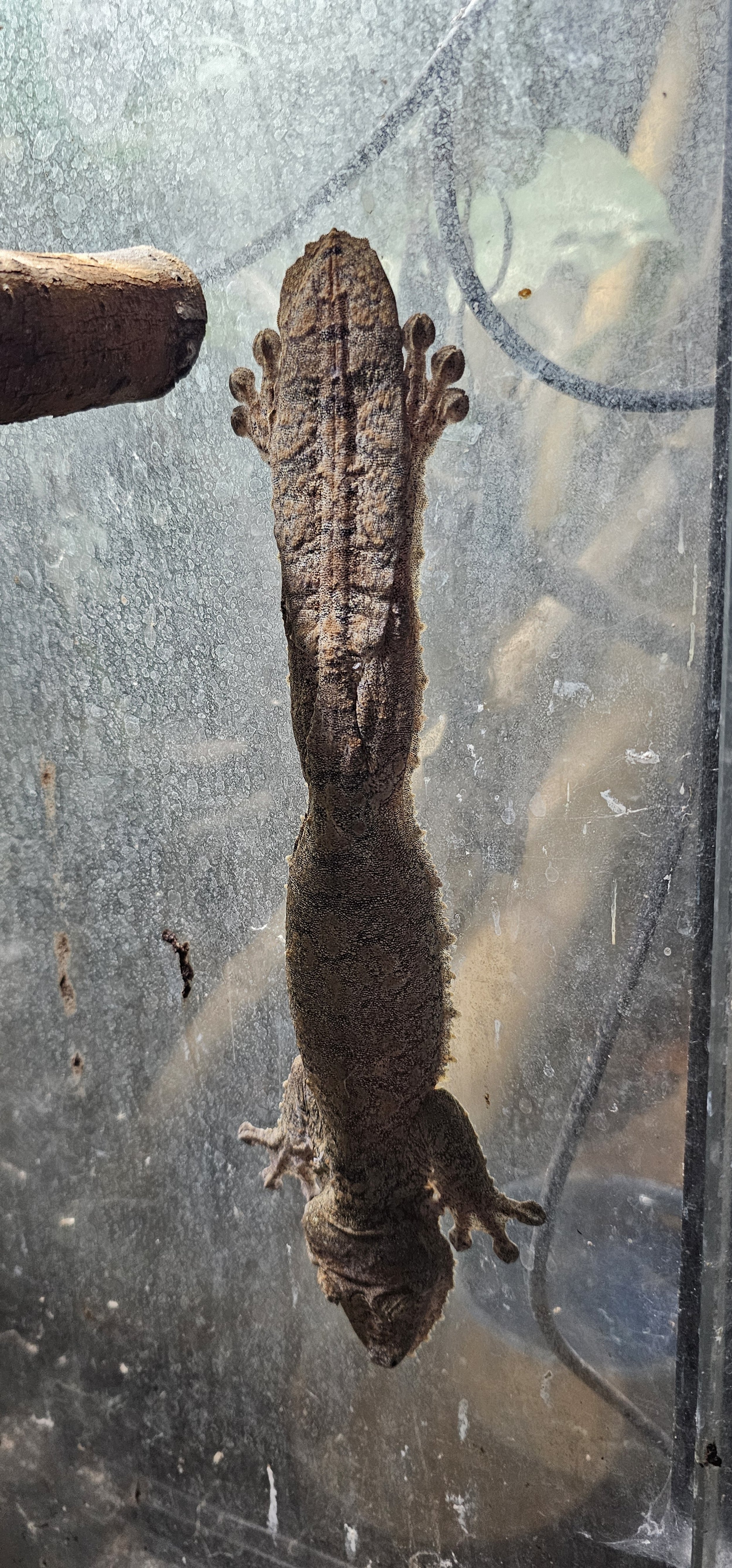 Image 8 of 8
Image 8 of 8

Pair of Giant Leaf-Tailed Uroplatus Geckos For Sale
“Excellent communication from Jungle Reptiles and quick to respond to queries. Delivery was organised quickly and arrived as scheduled. Would recommend.”
— Patricia McAndrew, UK
Details
Exciting breeding project opportunity! Rarely available, and absolutely stunning!
Giant Leaf-tailed Geckos are part of the iconic Uroplatus genus, made up of geckos with breath-taking camouflage abilities with their leaf-mimicking tail and lichen-like skin!
Photos taken December 2024, photo of female sleeping on glass added January 2025
For sale in our Bracknell reptile shop
Age: WC Adults (to add fresh bloodlines to captive breeding efforts)
Sex: Male and Female Pair
Priced as a pair
Handling: Display species, with infrequent handling when necessary
Suitability: Experienced Keepers
Diet: Live insects
Natural Habitat: Endemic to tropical forests of Madagascar
Enclosure recommendations
Giant Leaf-tailed Geckos are found almost exclusively on tree trunks, branches and vines in their natural habitat, where they will sit out in the open (but well camouflaged) during the day, and become active at night.
For this reason, a glass terrarium of 3ft long and 3ft tall is most recommended, filled with vertical cork branches as well as vines and plants. Live-planted bioactive environments suit them well.
Low-level heating, if required, should be thermostatically controlled. Temperatures should be measured with multiple digital thermometers or a heat gun. Low-level UV lighting is highly recommended.
They require high ambient humidity levels, but care should be taken to avoid the environment becoming stagnant. Digital hygrometers should be used to read humidity levels, and an automatic misting system is recommended.
Exciting breeding project opportunity! Rarely available, and absolutely stunning!
Giant Leaf-tailed Geckos are part of the iconic Uroplatus genus, made up of geckos with breath-taking camouflage abilities with their leaf-mimicking tail and lichen-like skin!
Photos taken December 2024, photo of female sleeping on glass added January 2025
For sale in our Bracknell reptile shop
Age: WC Adults (to add fresh bloodlines to captive breeding efforts)
Sex: Male and Female Pair
Priced as a pair
Handling: Display species, with infrequent handling when necessary
Suitability: Experienced Keepers
Diet: Live insects
Natural Habitat: Endemic to tropical forests of Madagascar
Enclosure recommendations
Giant Leaf-tailed Geckos are found almost exclusively on tree trunks, branches and vines in their natural habitat, where they will sit out in the open (but well camouflaged) during the day, and become active at night.
For this reason, a glass terrarium of 3ft long and 3ft tall is most recommended, filled with vertical cork branches as well as vines and plants. Live-planted bioactive environments suit them well.
Low-level heating, if required, should be thermostatically controlled. Temperatures should be measured with multiple digital thermometers or a heat gun. Low-level UV lighting is highly recommended.
They require high ambient humidity levels, but care should be taken to avoid the environment becoming stagnant. Digital hygrometers should be used to read humidity levels, and an automatic misting system is recommended.
Exciting breeding project opportunity! Rarely available, and absolutely stunning!
Giant Leaf-tailed Geckos are part of the iconic Uroplatus genus, made up of geckos with breath-taking camouflage abilities with their leaf-mimicking tail and lichen-like skin!
Photos taken December 2024, photo of female sleeping on glass added January 2025
For sale in our Bracknell reptile shop
Age: WC Adults (to add fresh bloodlines to captive breeding efforts)
Sex: Male and Female Pair
Priced as a pair
Handling: Display species, with infrequent handling when necessary
Suitability: Experienced Keepers
Diet: Live insects
Natural Habitat: Endemic to tropical forests of Madagascar
Enclosure recommendations
Giant Leaf-tailed Geckos are found almost exclusively on tree trunks, branches and vines in their natural habitat, where they will sit out in the open (but well camouflaged) during the day, and become active at night.
For this reason, a glass terrarium of 3ft long and 3ft tall is most recommended, filled with vertical cork branches as well as vines and plants. Live-planted bioactive environments suit them well.
Low-level heating, if required, should be thermostatically controlled. Temperatures should be measured with multiple digital thermometers or a heat gun. Low-level UV lighting is highly recommended.
They require high ambient humidity levels, but care should be taken to avoid the environment becoming stagnant. Digital hygrometers should be used to read humidity levels, and an automatic misting system is recommended.
Delivery or pickup?
At checkout you can choose free pickup from our UK reptile shops, or Licensed Animal Courier:
- England or Wales: £55 £65
- Scotland (up to Dundee): £80 £90
- Scotland (above Dundee): £120 £130

We'll arrange a delivery date that works for you after you place your order.
Order cancellation
After you place an order you will receive an automated confirmation email. You will receive a second email from us personally as soon as possible to discuss your kit and set-up, collection or delivery date.
You can cancel your order for free and get a full refund if you let us know within 24 hours of receiving the second email from us.
If you choose to cancel after 24 hours of receiving the second email from us, then we will retain 25% of the price of each animal in your order. This is to help cover the cost of housing, feeding and caring for the animal(s) while they were reserved for you — and no one else could buy them.
Our full Terms of Service

